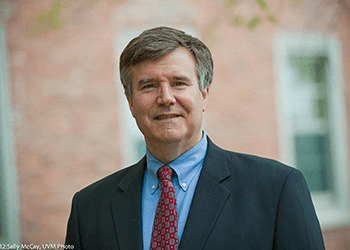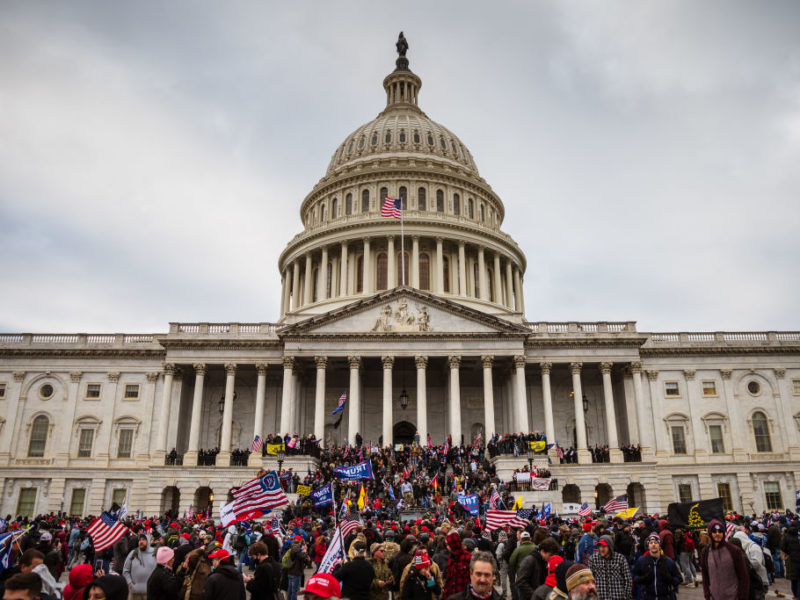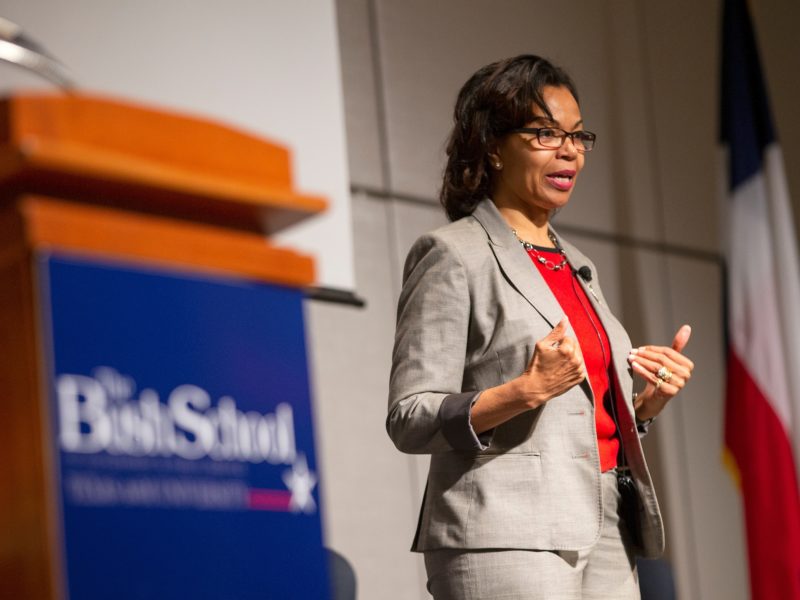Despite Shakeups, Saudi Arabia Strong
Viewing Saudi Arabia as unstable is “a mistake,” says Gregory Gause, professor of international affairs at the Bush School of Government and Public Service at Texas A&M University. With the King’s young son possibly jumping ranks to become the country’s new leader, talk of privatization and less oil dependence, heavy reliance on foreign labor, and renewed tensions with the U.S., it may seem to some the country lacks stability. But Gause says a united ruling family, a professional and elaborate security system, and strong constituents throughout the country have sustained Saudi rulers through much turmoil, and “the idea they are going away tomorrow is unlikely.”
Gause, whose research field is Middle East politics, is the John H. Lindsey ’44 Chair and Head of the International Affairs Department at the Bush School and is often quoted in major media outlets regarding politics in Saudi Arabia. Perhaps an interesting side note, a new connection between Saudi Arabia and Texas A&M emerged when it was announced this month that a 1982 Texas A&M graduate in mechanical engineering, Khalid Al-Falih, was named Saudi Arabia’s Minister of Energy, Industry and Mineral Resources.

A “Game Of Thrones”
Grabbing headlines of late has been the sudden and unprecedented rise to power of one of the younger sons of King Salman, Deputy Crown Prince Mohammed bin Salman. Referring to it as a “Game of Thrones” in a Foreign Affairsarticle, Gause says the shakeup has many in Saudi Arabia and beyond paying close attention. “He’s young, early 30s,” says Gause, “and unlike many others of his generation, he has never studied outside Saudi Arabia; he has been an aide to his father most of his life. His father named him Deputy Crown Prince, made him the defense minister and put him in charge of the cabinet committee for planning economic policy.”
In so doing, Gause notes, the King has essentially skipped over several older members in the royal family who have more experience in government. “The King can do what he wants,” Gause explains. “The senior members of the Saudi family have for decades run the country through an informal committee. Placing so much power in the hands of one young prince goes against that practice. One wonders if senior figures in the family will come together and say to the King ‘you have to include more of us in this process.’”
So what is it about this up-and-coming leader that would allow him to jump ranks? “He has the confidence of his father,” Gause says. “That’s the 10 most important reasons right there. Also he seems energetic and ambitious. But he doesn’t have much experience.”

A Bold Plan
A sign of such ambition is the Prince’s “Saudi Vision 2030,” a proposed economic plan for the country which, says Gause, “has a lot of goals, but little sense of how they will be implemented.”
He says the drop in crude oil prices has resulted in billions lost in Saudi Arabia’s net foreign assets and forced the monarchy to dip into reserves.
One proposal in Vision 2030 is the partial privatization of Saudi Aramco, the state-owned oil and gas company. Prince Mohammed’s plan would require the selling of less than 5 percent of the company, which would result in the world’s largest government-owned investment fund.
The plan also proposes the country raise non-oil revenue by $100 billion by 2020. “They’ve been talking about less dependence on oil since the 1970s,” Gause notes, “but as of yet, we haven’t seen the steps put in place. The economy is a ‘job-creating machine,’ but most of the jobs have gone to foreign labor, much of it from South Asia, because the labor is cheaper.”
Gause adds that many white-collar workers come to Saudi Arabia and make good money. “But for blue-collar workers, construction and retail for example, those jobs don’t go to Saudis because they want a higher wage than what many employers are willing to pay.”
Gause says low oil prices will cause the government to act one way or another. “The Saudi budget requires a much higher oil price, so they either have to tax people or reduce their spending. The private sector will go through a shakeout or there’s going to be a real crisis.”
U.S.-Saudi Relations: It’s Complicated
Tensions between Saudi Arabia and the U.S. have also been grabbing headlines and were evident in King Salman’s sending of a lower-level official in place of himself to greet President Obama during a recent visit.
Shared interests but differing values have made for strained relations over the years, says Gause, noting Saudi Arabia is an authoritarian regime that doesn’t allow women certain freedoms, such as driving, has no free press and no freedom of religion.
Yet, says Gause, it is critical for the U.S. to maintain good relations. “Although we produce more oil over here, Saudi Arabia is still the largest oil exporter in the world; they can most easily increase or decrease their production,” he says, adding, “The Middle East is a mess and Saudi Arabia is one of the few places with a stable government. You can deal with them on a government-to-government basis.”
He acknowledges many Americans are wary of the Saudi government, given it is a monarchy, women’s rights are curtailed, and the culture is just so different. Not to mention, the majority of the 9/11 hijackers were from Saudi Arabia.
Gause says no link has ever been found to suggest the Saudi government had anything to do with 9/11 and he says when it comes to fighting terrorism and finding stability in the Middle East, the U.S and Saudi Arabia are a united front.
“Al-Qaeda attacked the Saudis; ISIS wants to destroy them,” he notes. “Since 9/11, the U.S. and Saudi Arabia have developed a good working relationship in the fight against terrorism, in sharing intelligence. They are working with us to thwart the Jihadist movement. It would be hard for me to believe the Saudi government is playing a double game.”
Media contact: Lesley Henton, Texas A&M Division of Marketing & Communications.





